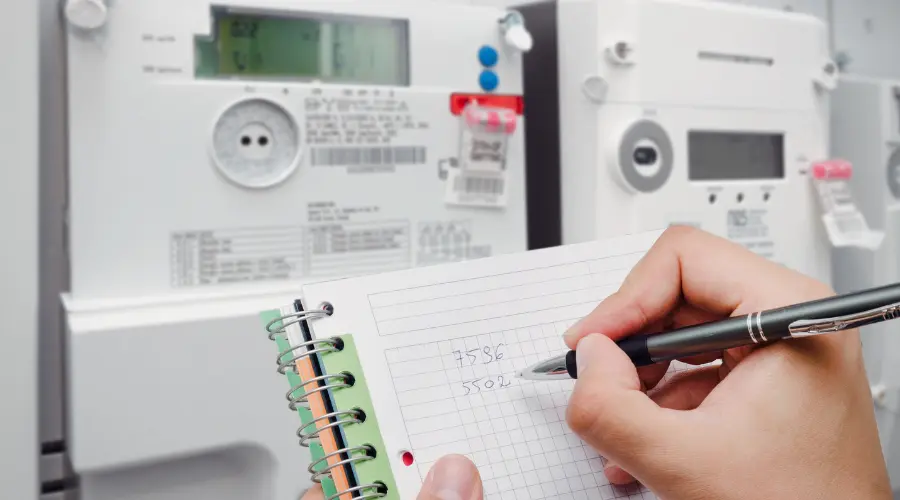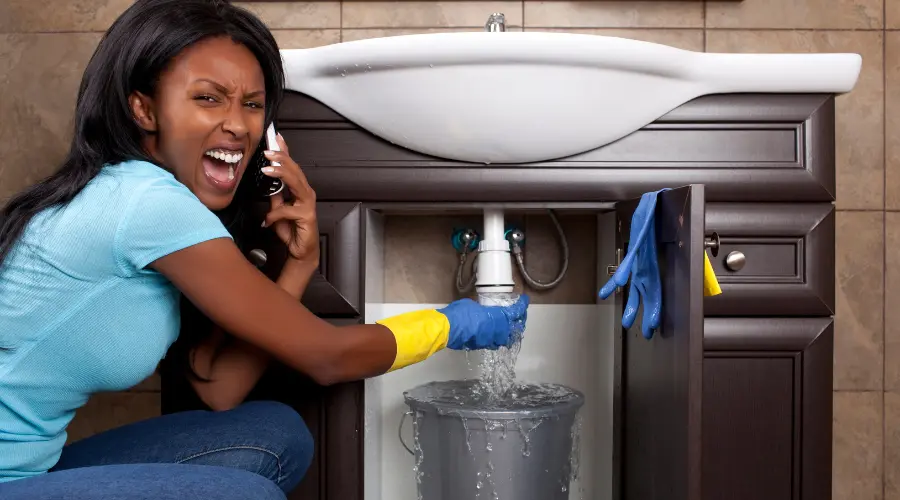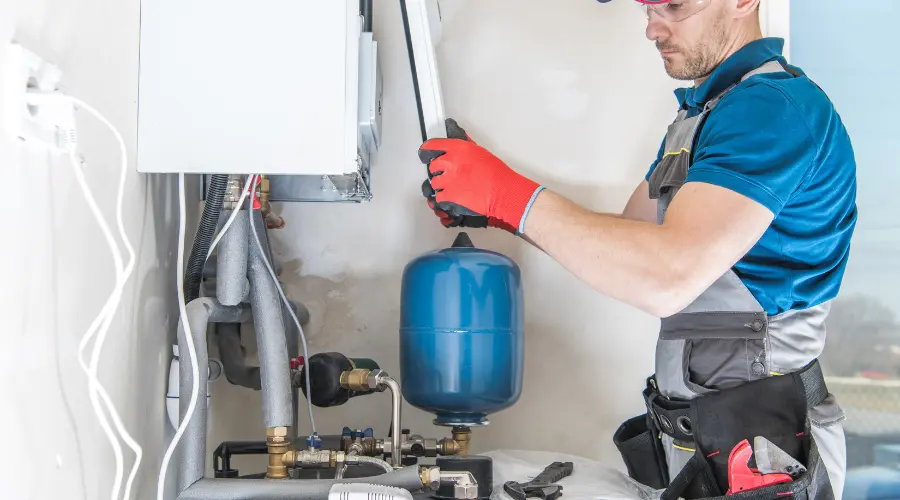Shower smells can disrupt your sanctuary, turning a soothing routine into an unpleasant experience. Unravel the mystery behind these odors and learn practical solutions to restore freshness to your bathroom.
Key Takeaways:
- Common causes of shower smells include dirty P-traps, leaky pipes, biofilm buildup, and clogged drains.
- Simple DIY remedies like cleaning the P-trap, using enzyme-based solutions, and clearing clogs can resolve many issues.
- Persistent or severe odors may indicate deeper plumbing problems requiring professional intervention.
Understanding the Causes of Shower Smells
A smelly shower is more than an inconvenience; it can signal underlying issues with your plumbing system. Let’s explore the root causes and how to address them effectively.
1. P-Trap Issues
The P-trap is a U-shaped pipe that prevents sewer gases from entering your home. When functioning correctly, it creates a water seal that blocks odors. However, if it dries out or becomes clogged, smells can escape.
How to Fix:
- Inspect the P-trap with a flashlight.
- Remove debris using gloves or a cloth.
- Refill the P-trap with cold water to restore the seal.
- Regularly flush the trap with water to prevent drying.
2. Leaky Pipes
Leaks in your drain lines can introduce sulfurous gases, often described as smelling like rotten eggs. Corrosion, loose joints, or faulty valves are common culprits.
How to Repair:
- Tighten corroded joints and replace rusted pipes.
- Use the plumber’s tape to seal minor leaks temporarily.
- Consult a professional plumber for severe damage to ensure safe and lasting repairs.
3. Biofilm Buildup
Biofilm—a slimy residue formed by decomposing hair, soap scum, and dirt—can accumulate inside pipes, causing unpleasant odors.
How to Clean:
- Use an enzyme-based cleaner to target bacteria and organic matter.
- Regularly scrub or flush drain covers to prevent buildup.
- Avoid pouring grease or heavy residues down the drain.
4. Clogged Drains
Blocked drains trap water and organic materials, accelerating decomposition and odor formation.
How to Clear:
- Use a plunger to dislodge minor blockages.
- Mix baking soda and vinegar, followed by boiling water, to dissolve clogs naturally.
- Although certain water heater problems can be resolved using consult a professional plumber.
Preventive Measures for Fresh-Smelling Showers
Being proactive might assist you in maintaining a clean and odor-free bathroom.
- Routine Maintenance: Flush drains weekly with hot water and a mild cleaning solution.
- Hair Catchers: Install drain screens to prevent hair and debris from entering pipes.
- Regular Cleaning: Clean the shower and drain covers to remove soap scum and dirt.
- Inspect for Leaks: Check pipes and fixtures for signs of corrosion or loose connections.
FAQ: Your Questions Answered
Q1: How do I know if the smell comes from the P-trap?
A: Shine a flashlight into the drain to inspect the P-trap. If it’s dry or contains visible debris, it’s likely the source of the odor.
Q2: What is the best way to clean biofilm from pipes?
A: Use an enzyme-based drain cleaner to dissolve organic buildup without damaging pipes. Follow up with regular flushing to prevent recurrence.
Q3: Can a smelly shower drain indicate a serious plumbing problem?
A: Persistent odors can signal significant issues like leaks or sewer line damage. Contact a professional plumber if DIY fixes don’t resolve the smell.
Q4: Why does my shower smell worse after heavy rainfall?
A: Rain can increase pressure in sewer lines, pushing gases back into your home. This often indicates a compromised P-trap or faulty venting system.
Q5: Can I clean my teeth with bleach shower drain?
A: While bleach can disinfect, it may not effectively remove clogs or biofilm. Enzyme-based cleaners are a safer, more practical option for addressing odors.
Q6: How often should I clean my shower drain?
A: Clean your drain monthly to prevent buildup and odors. Consider more frequent maintenance if you have a history of clogs or smells.
Q7: What should I do if my efforts don’t resolve the smell?
A: Persistent issues may require professional evaluation. Call a licensed plumber to diagnose and address underlying problems.
When to Call the Professionals
If DIY solutions fail to resolve the smell or if you notice other warning signs, such as slow draining or water leaks, it’s time to consult the experts.
West New York Plumbing and Heating specializes in diagnosing and fixing plumbing issues. Contact us at (201) 977-6775 to restore your shower to its refreshing best.




